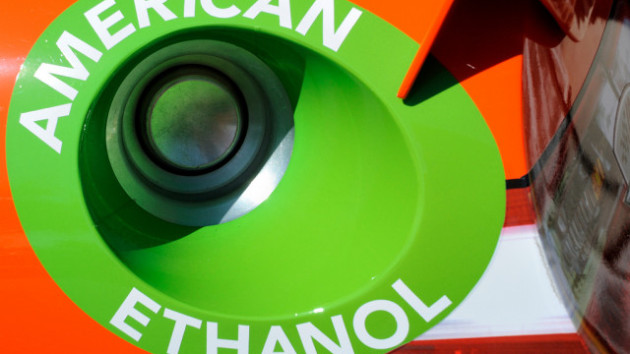Report: Florida ethanol plant a bust – zero gallons of biofuel produced
The Institute for Energy Research (IER) did a review of the Environmental Protection Agencies’ (EPA) biofuel mandate. According to IER, “The Energy Policy Act of 2005 requires the Environmental Protection Agency (EPA) to set mandatory levels of cellulosic biofuel for refiners to blend into transportation fuels. In order to restrain EPA, the law requires that the mandate be based on an estimate from the Energy Information Administration (EIA) as to how much cellulosic biofuel would be produced in the given year.”
One of the companies formed to meet the need for biofuels is INEOS Bio. INEOS Bio USA, LLC is located at 925 74th Avenue Southwest, Vero Beach, Florida. INEOS Bio’s parent company is the INEOS Group.
INEOS Group was founded by James Arthur “Jim” Ratcliffe, a chemical engineer turned financier and industrialist. According to the 2010 Sunday Times Rich List, Ratcliffe is one of the richest people in the United Kingdom. INEOS Group is the fifth largest chemical company in the world measured by revenues. In April 2010, Ratcliffe relocated the INEOS Group to Lausanne, Switzerland from the UK to cut the tax bill and save the company £100m a year.
The INEOS Bio website states:
The Center is the first large-scale project in the United States to receive registrations from the EPA for a facility using non-food vegetative waste materials (vegetative and yard waste) to produce cellulosic ethanol. Construction on the Center was completed in June 2012, and production of advanced cellulosic bioethanol is scheduled to begin in the 4th Quarter. INEOS Bio has plans to run municipal solid waste at the Center after the initial start-up.
The BioEnergy Center created more than 400 direct jobs in construction, engineering and manufacturing during its development and injected more than $25 million dollars directly into the Florida economy. The Center has 60 full-time employees and provides $4 million annually in payroll to the local community. The project sourced over 90 percent of the equipment from U.S. manufacturers creating or retaining jobs in more than 10 states.
According to IER:
In November 2011, Ethanol Producer Magazine conducted an interview with INEOS Bio CEO Peter Williams. The article stated:
The project is on schedule and on budget so far, and if things continue to go as planned, the plant will be mechanically complete in April and will be continuously churning out waste-based ethanol by the second half of next year [2012].
The facilities were not completed by April. INEOS Bio did not issue a news release on the project until July 23rd, stating:
Construction of Ineos’ $130 million biorefinery joint venture project in the US has been completed, with production expected to begin in the second half of 2012, said Peter Williams, CEO of Ineos Bio, the Switzerland-based company’s bioenergy business.
INEOS Bio did not produce any cellulosic ethanol in the second half of 2012. In a subsequent news release on August 9, 2012, the company stated:
The Center is scheduled to begin production in the 3rd Quarter of this year.
In an October 31, 2012 news release, INEOS Bio stated:
Construction on the Center was completed in June 2012, and production of advanced cellulosic bioethanol is scheduled to begin in the 4th Quarter.
As EPA is aware, INEOS Bio produced 0 gallons of cellulosic biofuel from it[s] Florida plant in 2012. As of the date of this comment, the company still has not produced any cellulosic biofuel in 2013.
Smart Brief reported, “Ineos Bio has joined Algenol in asking Florida Gov. Rick Scott to reject a bill [HB 4001] that would do away with the state’s ethanol requirement. Signing the bill into law “would send a clear signal to companies like ours and other investors that Florida is unfriendly to advanced biofuels, investing in new technology and jobs it creates or to building a clean energy economy,” Ineos CEO Peter Williams wrote in an e-mail. The bill “is an all-out attack on ethanol,” said Algenol CEO Paul Woods, adding, “I would rather go to a state that welcomes the jobs and the opportunity.”
HB 4001 reads:
An act relating to the Florida Renewable Fuel Standard 2 Act; repealing ss. 526.201-526.207, F.S., the Florida Renewable Fuel Standard Act, to remove the requirement that all gasoline offered for sale in this state include a percentage of ethanol, subject to specified exemptions, waivers, suspensions, extensions, enforcement, and reporting; amending s. 206.43, F.S.; conforming a cross-reference; providing an effective date.
Governor Scott signed HB 4001 on May 31, 2013. HB 4001 takes effect July 1st, 2013.


